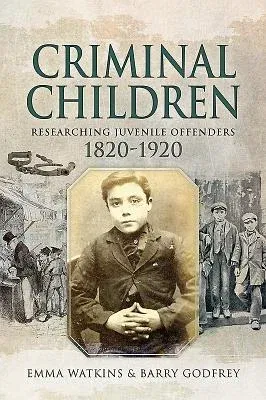Emma Watkins
(Author)Criminal Children: Researching Juvenile Offenders 1820-1920Paperback, 21 December 2018

Qty
1
Turbo
Ships in 2 - 3 days
Only 2 left
Free Delivery
Cash on Delivery
15 Days
Free Returns
Secure Checkout

Print Length
168 pages
Language
English
Publisher
Pen and Sword Family History
Date Published
21 Dec 2018
ISBN-10
1526738082
ISBN-13
9781526738080
Description
Product Details
Authors:
Book Format:
Paperback
Country of Origin:
GB
Date Published:
21 December 2018
Dimensions:
23.11 x
15.49 x
1.52 cm
ISBN-10:
1526738082
ISBN-13:
9781526738080
Language:
English
Pages:
168
Publisher:
Weight:
476.27 gm